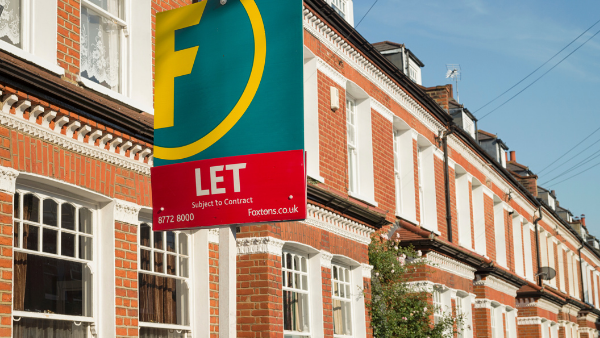From 25 November 2020 onwards it will be possible to carry out right to rent checks online. The new scheme will allow landlords to check whether their prospective tenants are permitted to rent via a new Home Office webpage, which should hopefully be up and running in the next day or two.
Who can use the new online system?
The new online checking service for landlords will be available to non-UK citizens that hold valid immigration status in the following categories:
- Non-EEA citizens with a valid biometric resident permit (BRP card);
- EEA citizens and their family members with status granted under the EU Settlement Scheme; and
- Those with status under the UK points-based immigration system but no BRP card.
Unfortunately, those that do not fall into the above categories will need to evidence their right to rent using hardcopy documents in the normal way.
What is the new system and how do I use it?
The new online service allows checks to be carried out by video call and permits landlord to accept and rely upon electronic documents as evidence of the prospective tenant’s right to rent rather original hardcopies.
The online checks should be carried out as follows:
-
Access the Home Office online service
The prospective tenant must first view their Home Office immigration record and confirm that it is accurate. They then must confirm that they wish to permit a third party to review their record. This generates a ‘share code’, which is valid for 30 days. The prospective tenant should then provide the share code to the landlord for them to check their immigration record.
To check the person’s immigration status and right to rent details, the landlord will need to:
- Access the service ‘Check a prospective tenant’s right to rent’ via GOV.UK;
- Enter the ‘share code’ provided by the prospective tenant; and
- Enter the prospective tenant’s date of birth.
-
Checking the documents
Once the landlord has gained access to the prospective tenant’s immigration record, they must first check that the photograph on the record matches the prospective tenant. This should be done in the presence of the prospective tenant, whether that be in person or via video link.
Secondly, the landlord must check to establish whether the prospective tenant’s right to rent is ‘time-limited’ or ‘continuous’. A ‘time-limited’ right to rent means that further right to rent checks will be necessary. A ‘continuous’ right to rent means that no further right to rent checks should be necessary.
A tenancy should not be entered into where a prospective tenant:
- Does not have valid leave to enter or remain in the UK; or
- Has not been granted discretionary permission to rent by the Home Office.
Any prospective tenant in this position will be deemed to be a ‘disqualified person’ for the purposes of renting. Landlords cannot legally offer a tenancy to a disqualified person.
Landlords are under no obligation to report applicants with no right to rent to the Home Office, provided they do not allow them to occupy their premises. Please see below for more information on what do in the event that you find out a current tenant is a disqualified person.
-
Retaining evidence of the check
It is important to keep a copy of the online profile that confirms the person’s right to rent, and this can be done by saving the page as a pdf or printing a hardcopy. Usually it is recommended to keep this information securely for the duration of the tenancy and for one year afterwards, before ensuring it is securely destroyed.
When to end a tenancy due to immigration status
If you know or believe that someone in your rented property is a disqualified person, you will have to take certain steps to end the tenancy. The following options are available to end the tenancy:
- If multiple people live in the property, where some may be disqualified from renting and some may have the right to rent, you can mutually agree (in writing) with the disqualified persons that they will leave the property;
- Arrange the surrender of the tenancy by mutual agreement. This means both the landlord and the tenant agree to end the tenancy early, ideally this will be in writing;
- Rely on a Notice of Letting to a Disqualified Person to begin the eviction process. The process changes depending on whether the notice names all the occupiers or only some of them; or
- Evict the tenant by using the Section 21 or Section 8 Notices. This is common for Assured Shorthold Tenancies.
Under section 22 of the Immigration Act 2014 (“2014 Act”), landlords “must not authorise an adult to occupy premises under a residential tenancy agreement if the adult is disqualified as a result of their immigration status”. For a landlord to have fulfilled this legal obligation they must be able to demonstrate they took ‘reasonable steps’, this can be shown by actively pursuing one of the steps to end the tenancy outlined above.
Take away points
All prospective tenants should be asked to evidence their right to rent, using either a physical document check as set out in the Code of Practice, or by using the new Home Office online service (where appropriate).
Under section 28 of the 2014 Act, a landlord who enters into a tenancy agreement with a disqualified person may be subject to a criminal offence that can lead to 5 years imprisonment and up to £3,000 per tenant (this figure can be increased to an unlimited fine for repeat offenders). It is therefore vitally important to know, carefully follow and record the right to work checks.
We are hopeful that this move to an online process will make evidencing the right to rent, far easier for migrants living in the UK. Those with slightly more complex immigration statuses may see little benefit from this change, however.
This article is for information purposes only and is not a substitute for legal advice and should not be relied upon as such. Please contact Lynsey Blyth or Emma Honey to discuss any issues you are facing relating to this article.





